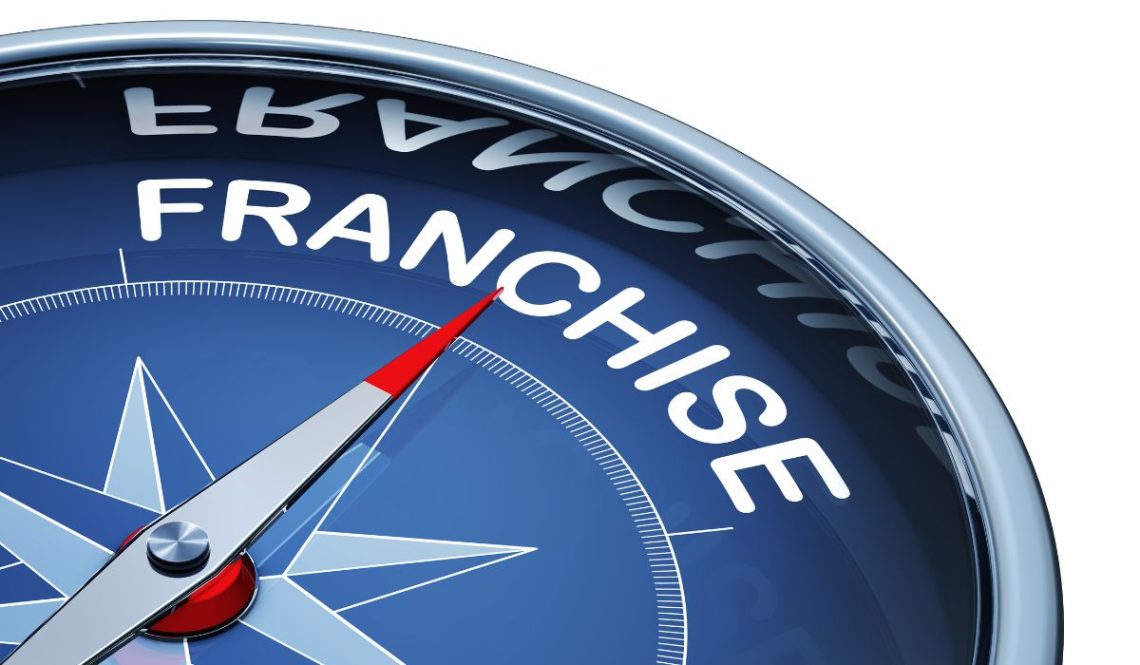
What Are Franchisees Usually Liable For | SkillsAndTech
Buying a franchise can be an exciting and lucrative way to become your own boss, but it’s important to understand what you may be liable for when entering into a franchising agreement.
After all, knowing what risks are involved in owning a franchise is key to making sure that the venture is successful.
In this article, we will look at some of the most common areas where franchisees have liabilities so that you can make an informed decision before taking on any new business opportunity.
See Also: Can A Franchisee Sue A Franchisor
Table of Contents
How The Franchise Business Model Function?
Before we dive into what franchisees are usually liable for, it’s important to understand how the franchise business model works.
The franchise model is one of the most popular ways to start a business, and it involves selling a brand’s goods or services using its name, resources, and training.
See Also: Adani Wilmar Distributorship
This type of agreement allows franchisors (the owners of the parent company) to expand their business without having to invest in any additional infrastructure or personnel.
This means that they have more money available to reinvest in their main operations.
In exchange, franchisees (the local business owners) receive exclusive rights to operate under that brand’s name in a specific geographic area, as well as access to turnkey operations, ongoing support, and marketing assistance.
See Also: Croma Franchise
They also pay an initial franchise fee and ongoing royalties based on their sales volume.
Franchisees will also typically be required to follow specific operating procedures set by the franchisor, such as compliance with health codes and regulations.
They may also be required to attend periodic training sessions or workshops on new products or services offered by their franchisor.
See Also: Amaron Battery Dealership
What Are Franchisees Usually Liable For?
Franchisees, like other types of business owners, are responsible for fulfilling their commitments under leases, finance agreements, tax/GST/PAYE requirements, employee contracts, the products and services they supply, and the quality of those things.
Most commercial contracts, including leases, finance agreements, and supplier relationships, do not place any legal responsibility on the franchisor.
See Also: The Failure & Success Rate Of A Franchise
The franchisor is not a party to the dispute, and it is highly unlikely that the franchisor will be held liable for any breach of contract.
However, franchisees are required to comply with all relevant local and state laws and regulations related to their business operations.
They are also responsible for the quality of the services they provide, as well as any health or safety issues that may arise from their products or services.
See Also: Uptown Cheapskate Franchise
If the actions of the franchisee do not adhere to the franchise criteria advice and the franchisor’s code of ethics and practice (such as food safety and customer service standards), it is highly unlikely that a franchisor will endure any liability. However, they will suffer damage to their brand and reputation.
Are Franchisors Liable For The Acts Of Their Franchisees?
If you are the franchisor of a business, in most cases, you will not be liable for the acts of your franchisees.
This is because franchise agreements usually contain an “indemnification clause,” which protects the franchisor from liability for their franchisees’ acts.
See Also: What Do Franchisees Typically Have To Pay To The Franchisor
The fact that a franchisee acts as a wholly different business is central to the concept of franchising.
The franchisee pays you money in exchange for the legal right to use their own independent business under your brand name, patent, copyrights, commercial secrets, and marketing system.
There is, however, one case in which you may be held liable for the duties of a franchisee.
This happens when a court determines that you have maintained a significant amount of control over the operation of the franchisee’s business.
See Also: Ductz Franchise
If this happens, the law will consider the franchisee to be your agent or employee, and you would be held vicariously liable for any of their wrongdoings.
The following are some examples of situations in which a court might conclude that the franchisor has retained too much control over the franchisee’s business:
- The franchise agreement includes tight guidelines that dictate how the franchisee should run their business on a day-to-day basis.
- Inspections of the franchisee’s location are performed on a routine basis by the franchisor.
- Rather than making royalty payments, the franchisee is obligated to split earnings with the franchisor.
See Also: How to Sell on Naaptol
What Is Limited Liability?
Limited liability is an important factor in franchising. It is a legal concept that states that an owner’s personal assets are not liable for any debts that the business may incur.
This means that if a lawsuit is brought against the franchise, any judgment will remain only with the franchise and not with its owners or shareholders.
For franchisees, limited liability means they are not legally responsible for any errors or omissions on behalf of their franchisor.
See Also: Which Is More Profitable Franchise vs Independent Restaurants? Which Is Better
This includes instances such as negligence or malpractice claims brought against the franchisor by employees or customers.
Furthermore, it means that franchisees are shielded from potential financial losses related to such situations since their own personal assets cannot be tapped to pay for damages.
For franchisors, limited liability is equally as important. It ensures that the company’s owners and shareholders are not personally liable for any of the franchisees’ errors or omissions.
See Also: How to Sell on Shopclues
This provides extra protection if a franchisor is sued by an employee, customer, or other party related to the business operations of a particular franchisee.
The details of this arrangement often depend on the specific franchise agreement but generally include provisions such as indemnification clauses, limitation of liability clauses, and exculpatory clauses, among other stipulations.
Indemnification clauses typically protect franchisees from third-party claims arising from their actions as well as from their franchisor’s negligence, while limitation of liability clauses restrict certain types of damages recoverable in case of a lawsuit.
See Also: How to Become a Paytm Seller
Exculpatory clauses can also limit damages to certain levels and bar certain parties (such as employees) from bringing suit against the franchisor, which helps reduce legal costs associated with litigation.
Common Areas Where Franchisees May Have Liability
Even though franchisors may be largely protected from the actions of their franchisees, there are a few key areas in which franchisees can still find themselves liable. These include:
1. Tax Liability
See Also: Are Franchise Restaurants Really Profitable
Tax liability is one of the most common areas where franchisees may have liability.
This means a franchisee must be responsible for paying taxes on any income earned through their business.
This includes not only federal and state income taxes but also local taxes, sales taxes, use taxes, and other applicable fees depending on the particular location of the franchise.
Franchisees should also be aware that they are liable for taxes associated with the employees they hire to operate the business.
See Also: Franchise Vs Dealership: What’s the Difference & What to choose
This includes payroll taxes as well as unemployment insurance contributions when applicable.
Furthermore, certain types of businesses may require additional licenses or permits with associated costs, which must be considered when calculating tax liability.
2. Labor Law Compliance
Franchisees are also liable for ensuring all labor laws and regulations are properly followed while running their business.
See Also: Franchise Vs. Startup: Which One Is Better
This includes the federal Fair Labor Standards Act (FLSA), which sets minimum wage requirements and overtime pay rules, as well as other state and local labor laws related to employee classification, hiring practices, and workplace safety.
Failure to comply with applicable labor laws can have serious financial consequences, so it’s important that franchisees stay informed of any changes or updates in order to remain compliant.
3. Environmental Regulations
See Also: Samosa Singh Franchise
Depending on the type of business, franchisees may be subject to additional environmental regulations such as those set by the US Environmental Protection Agency (EPA).
These include guidelines related to hazardous materials, waste disposal, and air and water quality, among other areas of concern.
These regulations vary depending on the jurisdiction and must be followed at all times to avoid potential legal action or fines.
See Also: Cyclebar Franchise
Failure to comply can also lead to significant financial losses, so it’s important that franchisees stay up-to-date with any changes that may affect their business operations.
4. Bankruptcy And Insolvency
In some cases, franchisees may find themselves liable for their business’s debts in the event of insolvency or bankruptcy.
This means that any creditors who are owed money by the business can seek legal action against the franchisee to collect their debts.
See Also: Indy Clover Franchise
It’s important to note, however, that certain states provide protection from this type of liability through corporate shield laws.
These laws allow franchisees to maintain their assets even if their business goes bankrupt, but the protection is not absolute, and certain conditions must be met in order to qualify for such protection.
5. Breach Of Contractual Obligations
Finally, franchisees may also find themselves liable for any breach of contractual obligations they have with their franchisor.
See Also: Wienerschnitzel Franchise
This could include failure to follow the franchise agreement or other rules and regulations set by the franchisor.
Violation of these terms can lead to termination of the franchise agreement or even legal action depending on the severity of the breach.
As such, franchisees must always be mindful of their obligations to their franchisor and take necessary steps to remain compliant with all contractual requirements.
Wrapping Up
See Also: Fried Green Tomatoes Franchise
Before entering into a franchise agreement, it’s important that prospective franchisees understand the legal and financial obligations they may be subject to.
Although many of these liabilities can be mitigated through careful planning and proper legal advice, it’s still important that franchisees are aware of the risks associated with owning a franchise business.
By understanding the risks associated with a franchise business and taking the necessary steps to protect themselves, franchisees can create a successful business that’s both financially and legally secure.






3 Comments
Pingback:
Pingback:
Pingback: